I have been using Creyos regularly as part of ADHD assessments for children. I find the ADHD protocol extremely helpful, as the 10 markers give a good illustration of the areas of difficulty and also help differentiate between attention deficit, hyperactivity, impulsivity, or the disorganized profile.
Behavioral health questionnaires for more efficient assessment
Digital versions of standardized patient self-report health questionnaires aid in behavioral health evaluation, diagnosis, treatment, and monitoring of the ongoing mental health of patients in a consistent and scalable way, saving providers time while helping them deliver superior care and treatment programs.
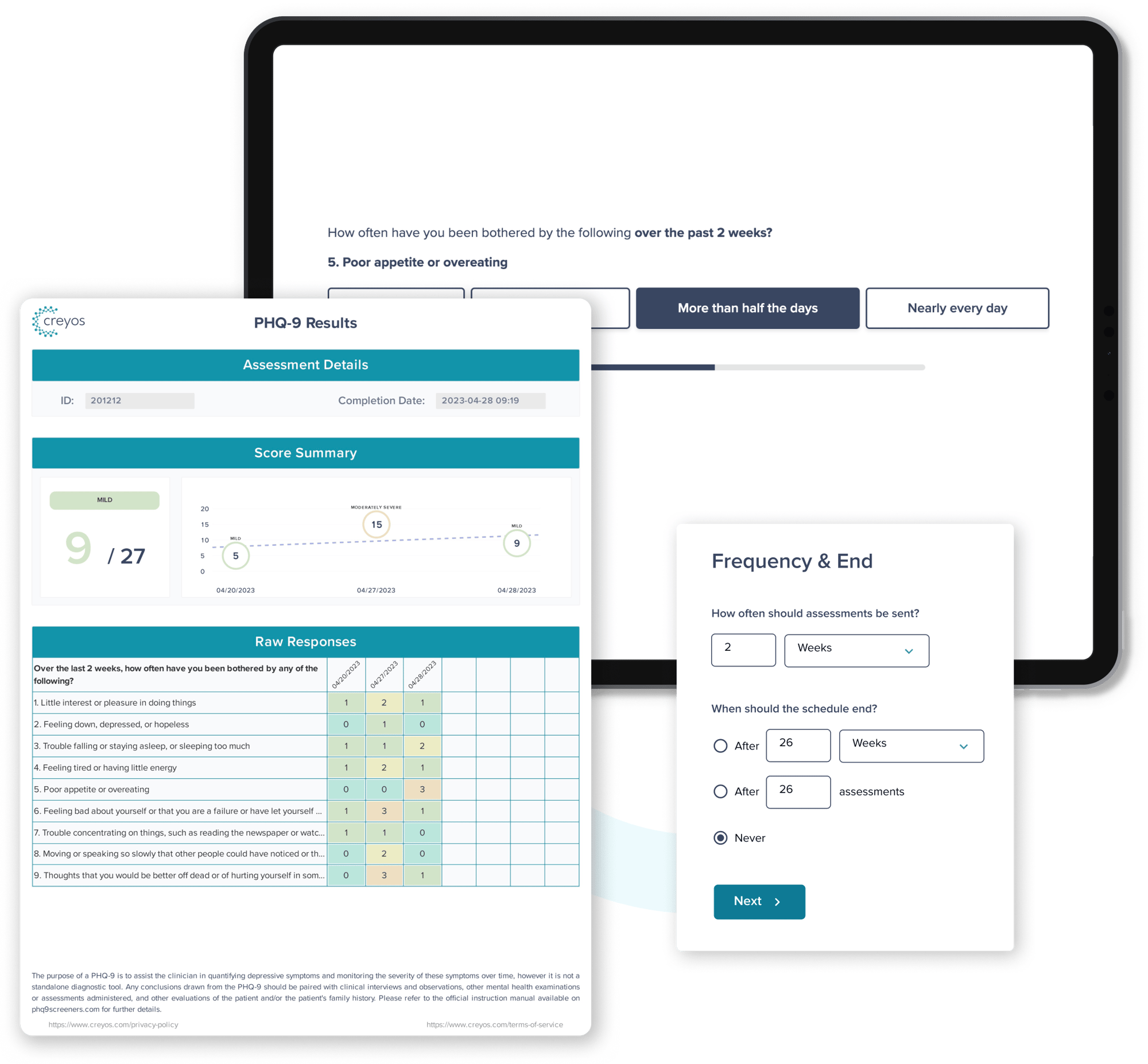

Improve behavioral health assessment
Creyos patient health questionnaires deliver a modern, friendly, experience that enables patients to report on their symptoms in an approachable, non-intimidating format for improved quality of care and patient satisfaction.

Integrate mental health services
Creyos simplifies mental and behavioral health screening for all healthcare professionals. Whether in general primary care or a specialist in substance abuse treatment, providers can integrate questionnaires to deliver whole patient care.

Increase completion rates
Available on desktop, tablet, and mobile, optimized for a variety of browsers, and translated into multiple languages, each patient health questionnaire is easy to complete and accessible, helping to promote health equity in access.
Patient-friendly experience for more accurate results
Behavioral and mental health questionnaires in Creyos can be added easily to any protocol. They include clear instruction for taking the questionnaire, ensuring there's no confusion and helping to improve completion rates. Providers get a straightforward diagnostic tool that helps them determine risk of mental health problems, enabling them to better detect mental health disorders and deliver higher quality medical care.
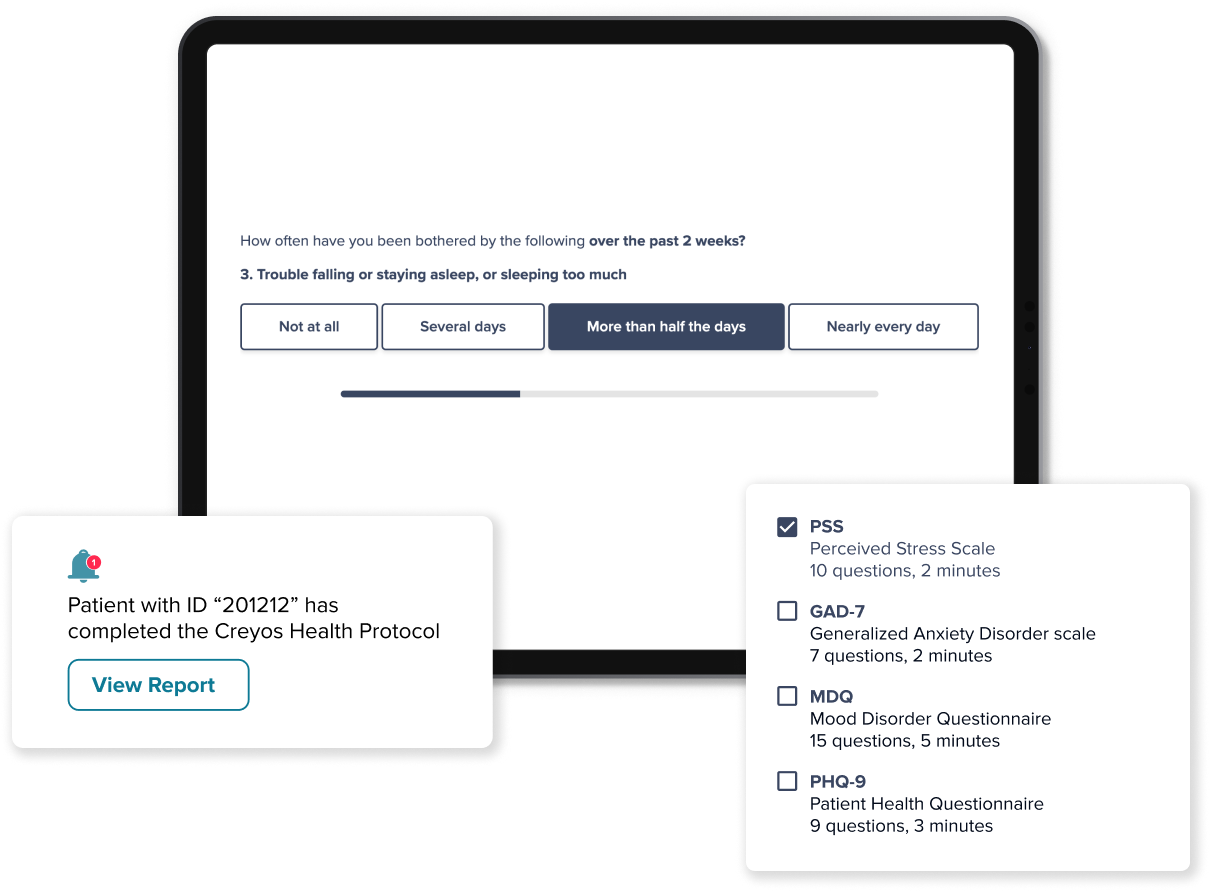
A one-stop solution for behavioral and mental health questionnaire administration
With 14 industry-standard questionnaires, health care professionals can use Creyos to screen for a variety of behavioral and mental health conditions. Depression, anxiety, stress, suicide risk, social phobia, and substance use disorders can all be assessed using a single platform.
Mental Health Screeners
Substance Misuse
ADHD
Brain Injury and Conditions Impairing Cognition
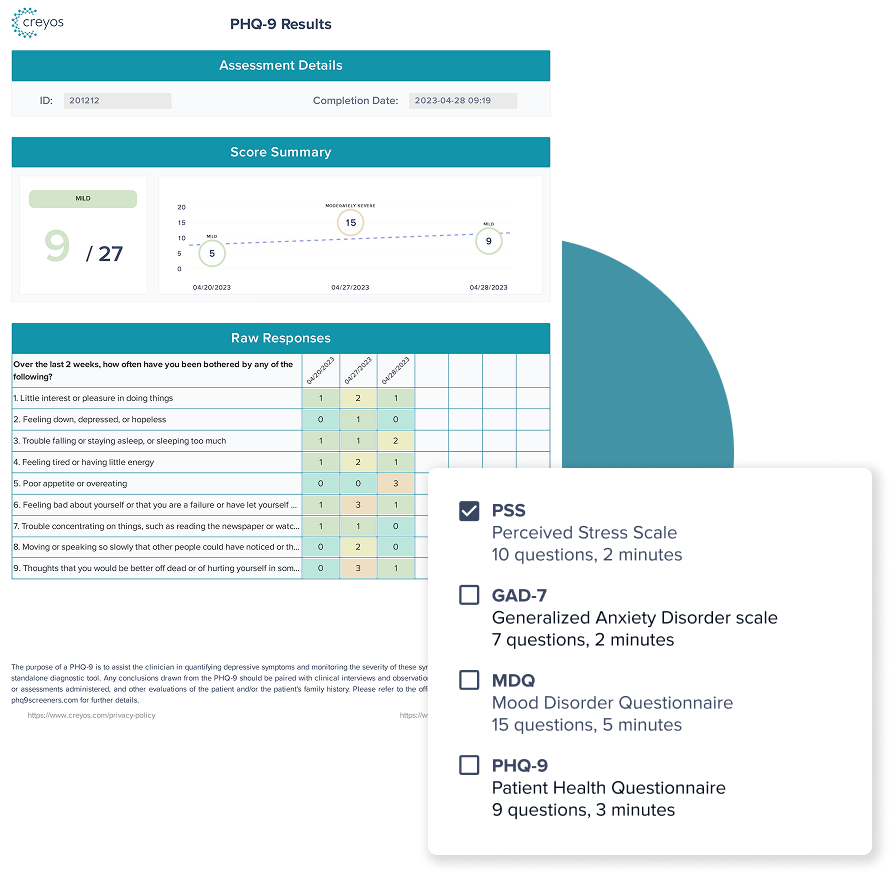
Mental Health Screeners
Mental health questionnaires designed to assess a patient's well being and detect symptoms of potential mental disorders enable a more holistic diagnosis, rule out comorbid conditions, and provide a full picture of patient brain mental and emotional health.
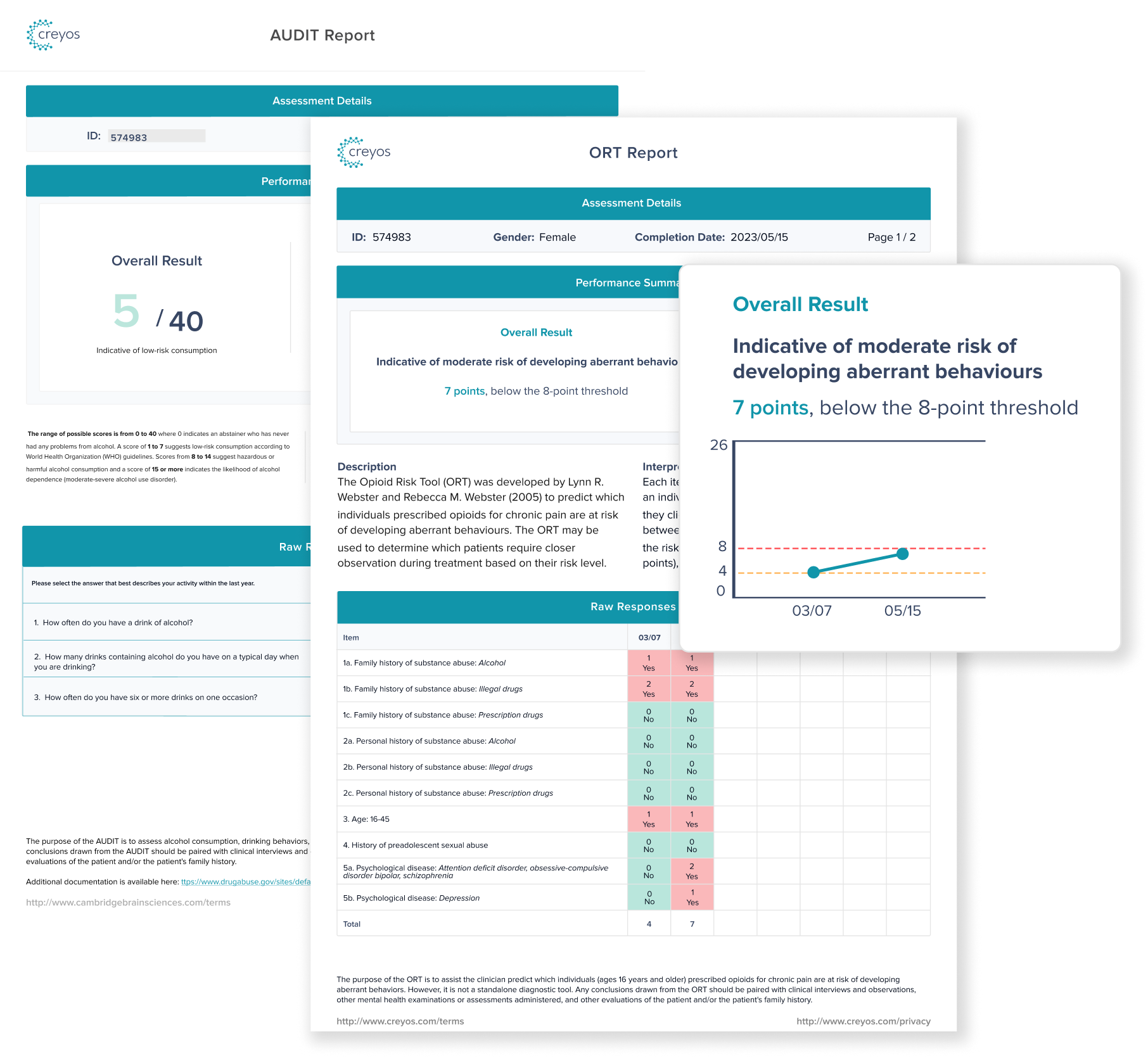
Substance Misuse
Detect potential of substance use disorder and addiction. Creyos includes questionnaires that can measure risk, helping health care professionals identify the effectiveness of pain management treatments, probability of opioid misuse, and whether dependency is impacting mental health.
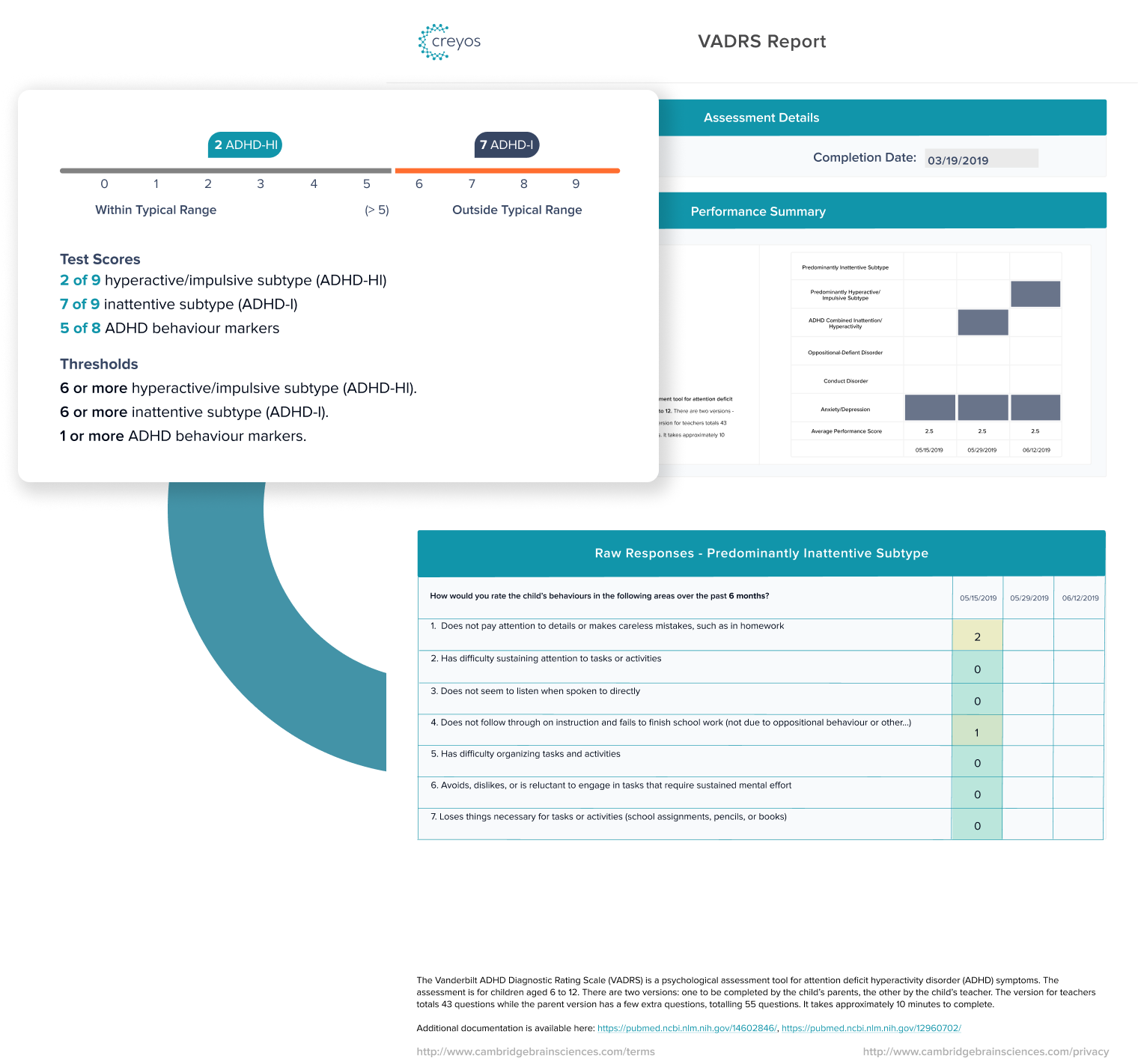
Attention Deficit Hyperactivity Disorder
Creyos includes screeners that help collect subjective patient inputs related to key areas of ADHD, including attention and concentration. With ADHD questionnaires suitable for adults, adolescents, and children, screening can address a variety of age groups making it a broad reaching diagnostic tool.
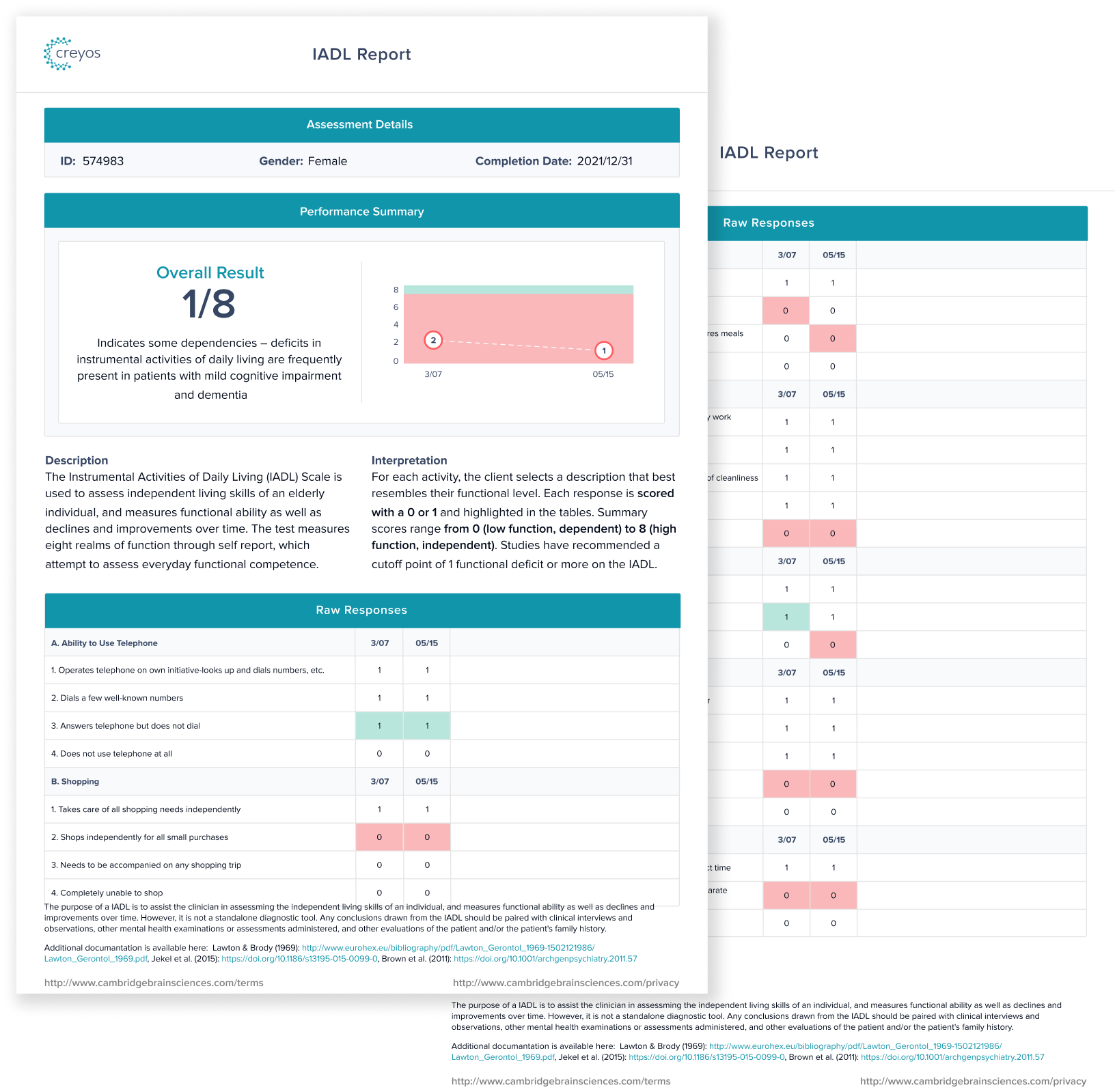
Brain Injury, Disturbances, and Other Disorders
Creyos includes questionnaires to help evaluate severity of cognitive impairment due to traumatic brain injuries (TBI), aging, sleep deprivation, and developmental disability, allowing health care professional to expand care services to even more patient populations.
Easily integrate into existing workflows
Streamline care delivery. Each patient health questionnaire can be administered by physicians or healthcare technicians, either as part of a regular E/M visit or a dedicated neuropsychological assessment appointment. Administration and interpretation of these tests often qualify for coverage under many insurance plans, delivering financial benefits to providers while simultaneously enhancing patient care.
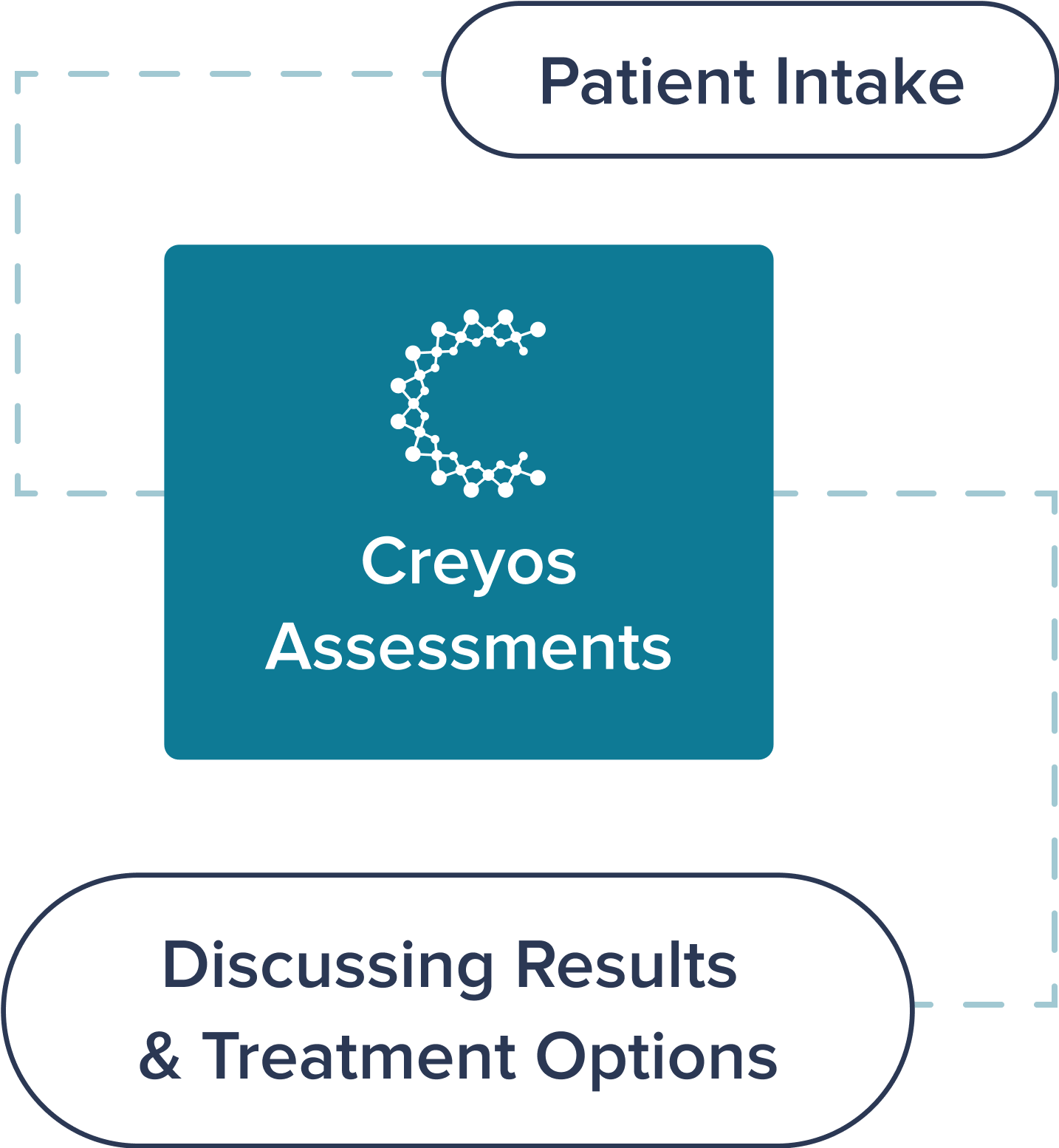
A full picture of patient brain health
Combined with the online cognitive tests, mental health questionnaires in Creyos provide a full picture of patient brain health, assisting health care professionals in developing personalized programs tailored to an individual's specific needs and optimizing the effectiveness of care programs.
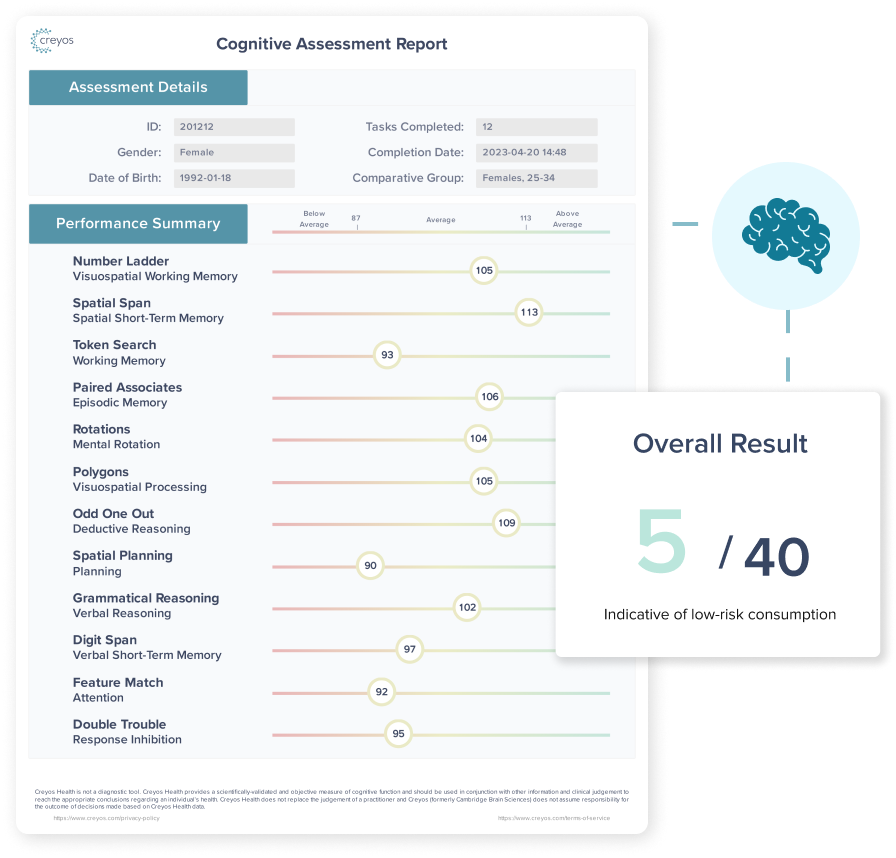
Frequently Asked Questions about the Creyos Behavioral and Mental Health Questionnaires
How does Creyos make mental health screening easier for my practice?
With an online-first approach, Creyos makes mental health screening scalable and consistent. Questionnaires typically administered by pen and paper and in piecemeal are available within a single platform, with results automatically collected, scored and organized for each patient. Providers get at-a-glance insights through easy to read reports that combine questionnaire data with cognitive test results for a full picture of patient brain health.
Do questionnaire results transfer to my electronic health system?
Creyos uses APIs to integrate with a variety of electronic health systems and has a built-in integration with athenahealth. That means results from each questionnaire and cognitive test will automatically appear in your EHR for easy access and review in combination with other patient health records.
What resources do you have available for patients to better understand how to complete each questionnaire?
In addition to embedded instruction, Creyos offers providers with resources to help patients prepare and feel at-ease about completing mental health tests. These resources address common questions and support the patient through the process for greater completion rates and more accurate results.
How are primary care providers using questionnaires in their practice?
With a rise of mental health conditions, many primary care providers are incorporating mental health assessment as part of their health services. This includes administering screens to help identify conditions like ADHD, anxiety, depression, stress and other mental health disorders that they can either treat when detected or use the test results to provide a higher quality specialist referral.




